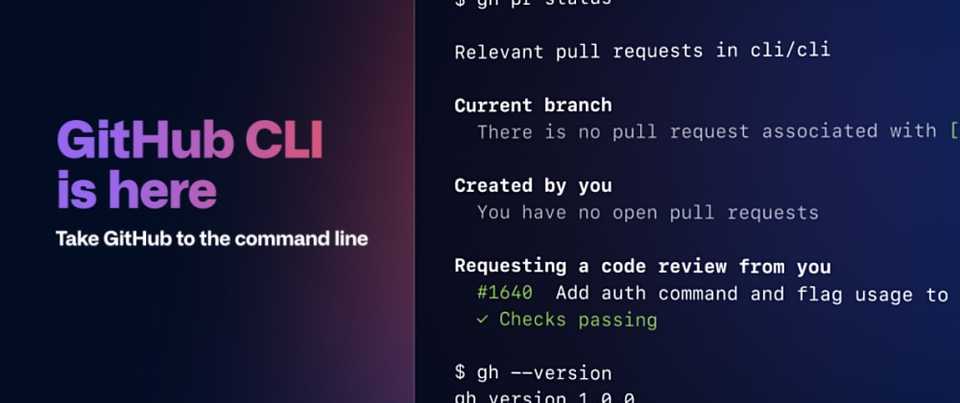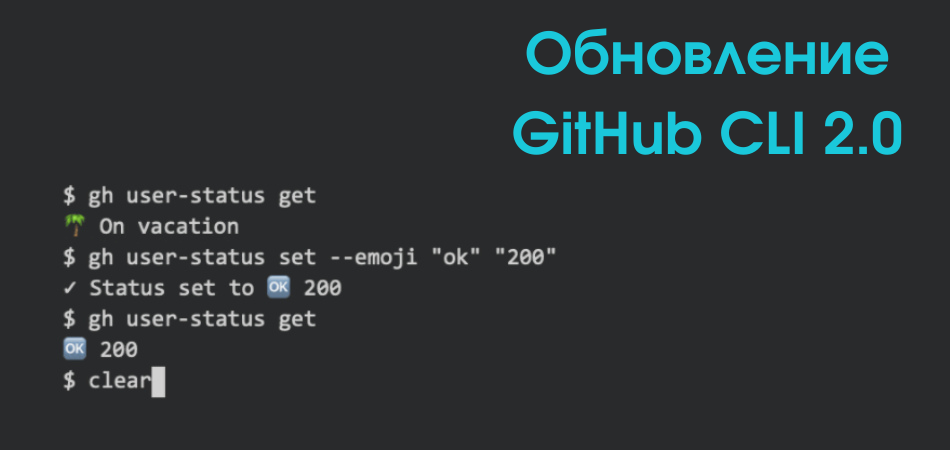

- #Github cli release install#
- #Github cli release manual#
- #Github cli release Patch#
- #Github cli release full#
- #Github cli release download#
The Heroku CLI is built with the Open CLI Framework ( oclif), developed within Heroku/Salesforce.
#Github cli release install#
Install a CLI plugin with heroku plugins:install someplugin, and you can extend your CLI installation. This background check happens at most once every 4 hours.īefore using the originally installed client, the heroku binary checks for an up-to-date client in ~/.local/share/heroku/client. If a new version is found, it’s downloaded and stored in ~/.local/share/heroku/client. When you run a heroku command, a background process checks for the latest available version of the CLI. The Heroku CLI keeps itself and its plugins (except linked plugins) up to date automatically, unless you installed the Debian/Ubuntu package or used npm install.
#Github cli release full#
For a full list of commands, see Heroku CLI Commands. done, ⬢ sleepy-meadow-81798Ĭheck out your preferred language’s getting started guide for a comprehensive introduction to deploying your first app. Now you’re ready to create your first Heroku app. For more information, see Heroku CLI Authentication. Logged in as CLI saves your email address and an API token to ~/.netrc for future use. You can’t use the -i option if you have multi-factor authentication enabled due to a technical dependency on web browsers for verification.

Logged in as you prefer to stay in the CLI to enter your credentials, run heroku login -i. › Warning: If browser does not open, visit Heroku: Press any key to open up the browser to login or q to exit

Get Started with the Heroku CLIĪfter you install the CLI, run the heroku login command. If you don’t see that output and you installed the Heroku CLI, check if you have an old heroku gem on your system. To verify your CLI installation, use the heroku -version command.
#Github cli release Patch#
If the CLI’s dependencies become incompatible in minor or patch releases, npm can cause issues. The other installation methods include the proper version of Node.js and don’t conflict with any other versions on your system.Īlso, npm doesn’t use the yarn lockfile for dependencies like the others, even if you install with yarn. Heroku uses current releases of Node.js and doesn’t support older versions. It also requires you to use your system’s version of Node.js, which can be older than the version Heroku develops the CLI against. The npm installation method doesn’t auto-update. We strongly recommend using one of the other installation methods if possible. This method is also useful if you want fine-grained control over CLI updates, such as in a tested script. You must have node and npm installed already. ARM and BSD must use this installation method.
#Github cli release manual#
Use this manual install method in environments where auto-updating isn’t ideal, or where Heroku doesn’t offer a prebuilt Node.js binary. The CLI is built with Node.js and installable via npm.

Install the community-maintained heroku-cli 7.60.1-1. Use the standalone installation for an autoupdating version of the CLI. Install with Ubuntu / Debian apt-get $ curl | sh xz is much smaller, but gz is more compatible. These tarballs are available in gz or xz compression.
#Github cli release download#
You can also download one of these tarballs and extract it yourself. The script requires sudo and isn’t Windows compatible. To set up the CLI in /usr/local/lib/heroku and /usr/local/bin/heroku, run this script. It contains its own Node.js binary and autoupdates. The standalone install is a simple tarball with a binary. Download the appropriate installer for your Windows installation:ģ2-bit installer Standalone Installation with a Tarball


 0 kommentar(er)
0 kommentar(er)
